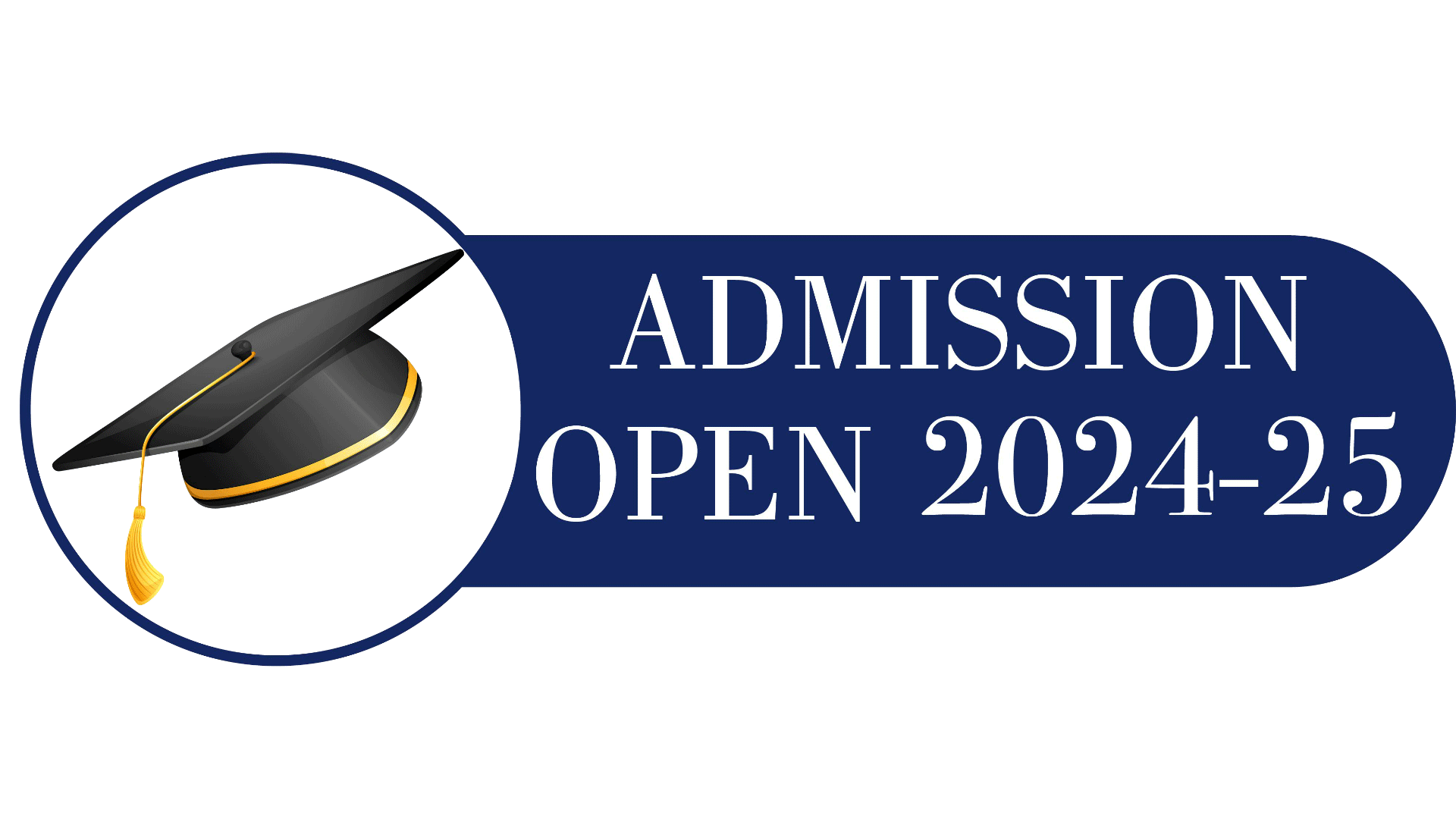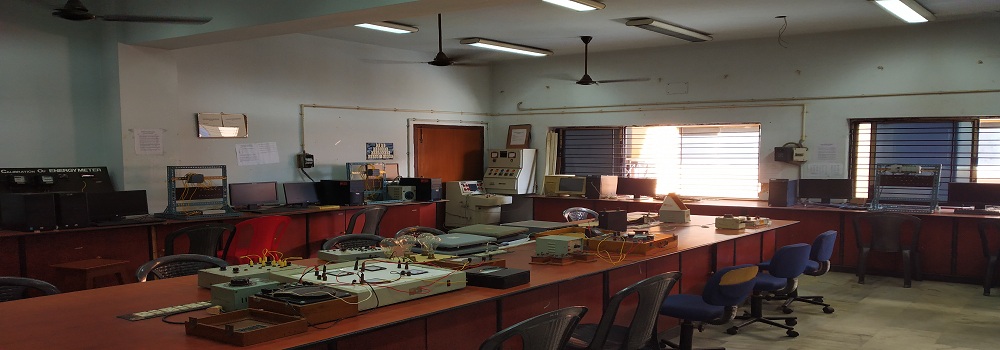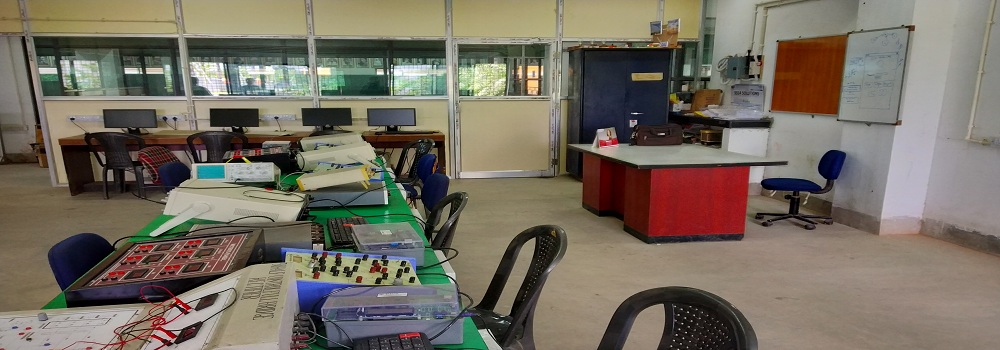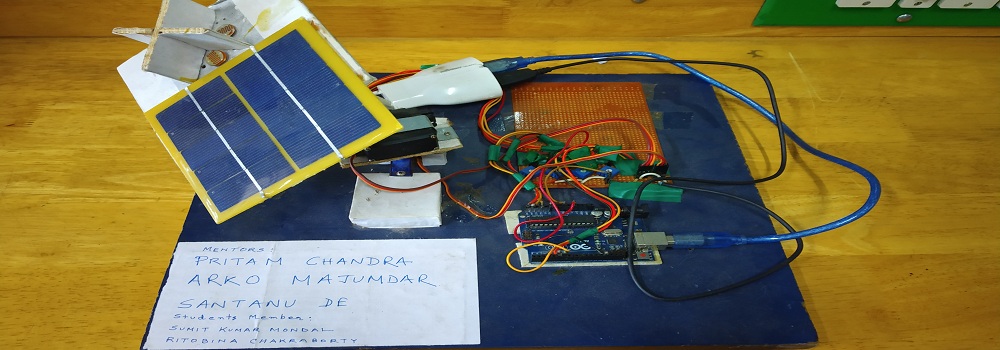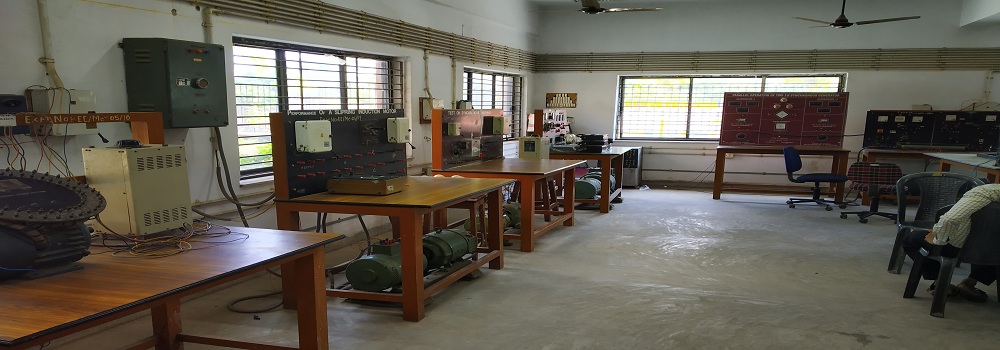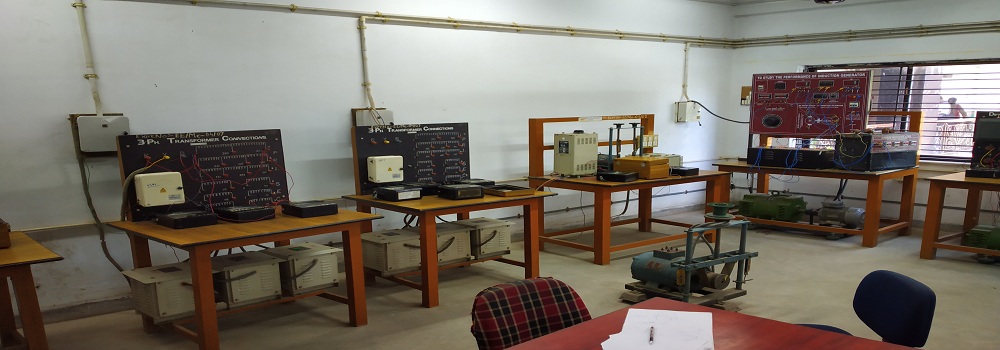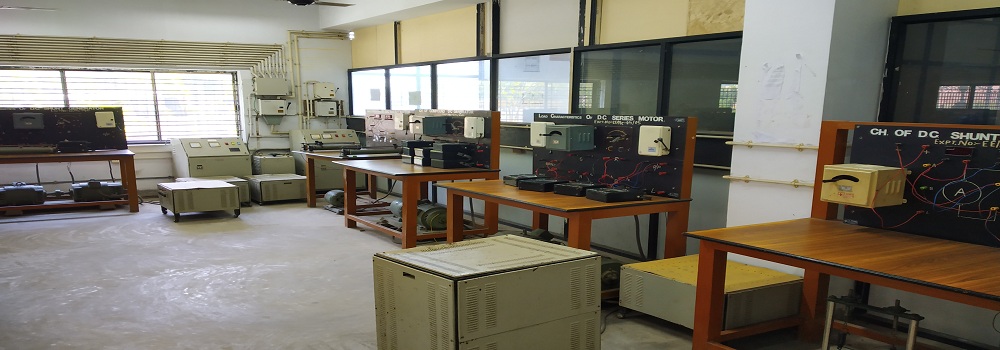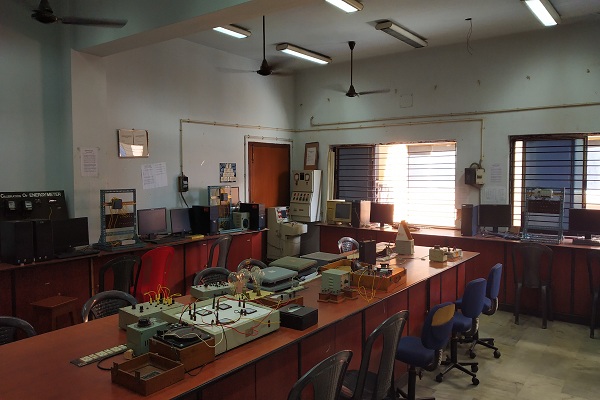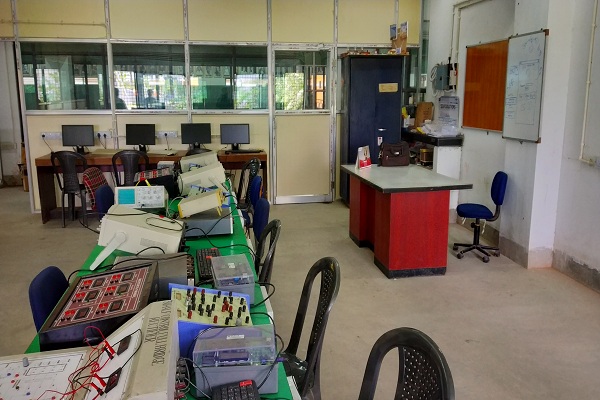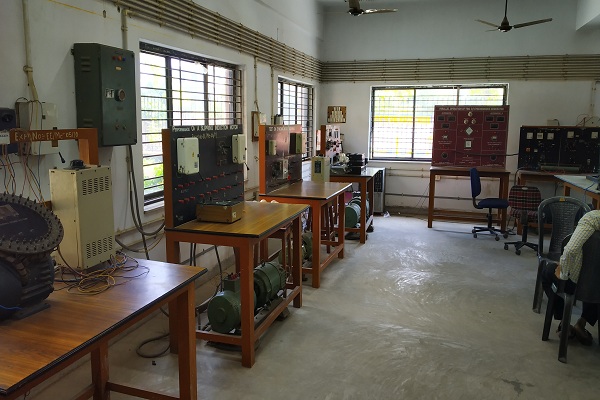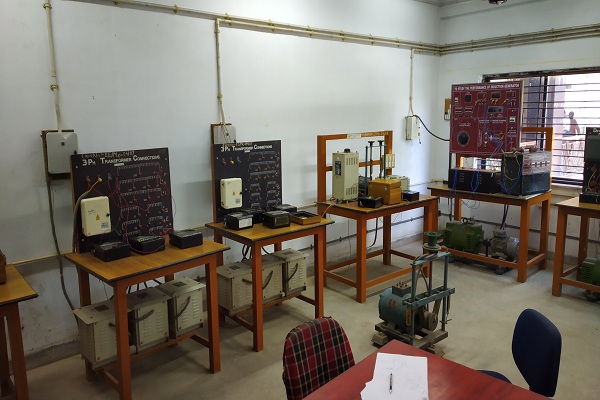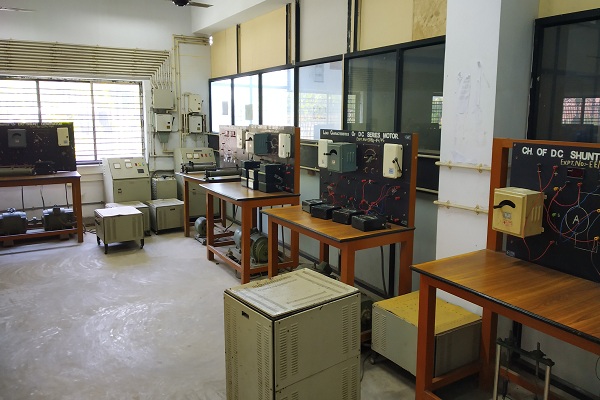About The Department
The Department of Electrical Engineering established in the year 2002 offers four years Under Graduate program. The faculty of the department practice innovative methods in the Teaching-Learning-Process that leads to effective implementation of Outcomes-Based-Education. The asset of the department is dedicated faculties, necessary technical assistants and enthusiastic students. The curriculum takes the student through effective usage of Modern Engineering Tools like: Matlab, ETAP, PLC, simulation tools. The department has strong interactions with relevant industries, and their contribution is reflected in through guidance in curriculum design, organization of industrial visits, conduction of expert lectures, organization of workshops.
All faculties actively pursue research in core-domain and in the domain of Engineering Education. The In-House Projects carried out by the students in the department under the guidance of faculty members help students to be at per with recent trends of technological advancements. The department prepares the graduating engineers so that they are able to pursue a successful professional career. The quality of the graduating students is reflected in good on-campus/off-campus recruitments. A significant number of our graduates pursue higher education in Engineering/ Management in prestigious Universities in India and outside India.
The department has two student branch chapters: IEEE Power Energy Society and IEEE Signal Processing Society. Both the student Branch Chapters plan activities keeping in mind to make students aware of industry practices. In line with this, workshops had been organized on PLC, Application of Python in Electrical Engineering, Application of MATLAB in Electrical Engineering, IOT etc. Students are also being trained on Application of Python in data Analytics, PCB design etc.
Vision of Department
become a department of global standard producing high quality graduates in electrical engineering for the betterment of society through pedagogical excellence, research and industry interaction.
Mission of Department
1. To provide learner centric teaching through appropriate pedagogy and proper training on new edge technologies.
2. To encourage and facilitate students, researchers and faculty members to work synergistically across all disciplinary boundaries for research, development and innovation.
3. To develop the department into a knowledge centre of international repute by upgrading resources and infrastructure beyond statutory requirement.
4. To promote entrepreneurship and technical consultancy by developing industry academia liaisons in the department.
5. To provide an environment in the department which promotes high regard for ethical principles and human values in pursuit of knowledge as a process of lifelong learning.
Program Educational Objectives (PEOs)
PEO 1: Graduates shall have good understanding of the electrical engineering fundamentals for identifying and analyzing real life engineering problems in power sector and manufacturing industries.
PEO2: Graduates shall provide innovative and state-of-the-art approaches for successful career growth in power sector, automation industries and blossom into entrepreneurs, scientists and technocrats.
PEO 3: Graduates shall have the expertise in modern IT tools like data science, AI, IOT, machine learning, image processing for measurable and impactful contributions that strongly support the organization’s high-level goals.
PEO 4: Graduates shall have ethical responsibility and create positive organizational impact through individual contribution and teamwork with a commitment to work with others of diverse culture and interdisciplinary backgrounds.
Parents' feedback form for Departmental Mission(DM) and Program Educational Objectives (PEOs)
Students feedback form for Departmental Mission(DM) and Program Educational Objectives (PEOs)
Faculty feedback form for Departmental Mission(DM) and Program Educational Objectives (PEOs)
Alumni feedback form for Departmental Mission (DM) and Program Educational Objectives (PEOs)
External academic experts' feedback form for Departmental Mission (DM) and Program Educational Objectives (PEOs)
Employer feedback form for Departmental Mission (DM) and Program Educational Objectives (PEOs)
Program Outcomes (POs)
Engineering Graduates will be able to:
PO1 Engineering Knowledge:Apply the knowledge of mathematics, science, engineering fundamentals, and an engineering specialization to the solution of complex engineering problems.
PO2 Problem Analysis: Identify, formulate, review research literature, and analyze complex engineering problems reaching substantiated conclusions using first principles of mathematics, natural sciences, and engineering sciences.
PO3 Design/development of solutions: Design solutions for complex engineering problems and design system components or processes that meet the specified needs with appropriate consideration for the public health and safety, and the cultural, societal, and environmental considerations.
PO4 Conduct investigations of complex problems: Use research-based knowledge and research methods including design of experiments, analysis and interpretation of data, and synthesis of the information to provide valid conclusions.
PO5 Modern tool usage: Create, select, and apply appropriate techniques, resources, and modern engineering and IT tools including prediction and modelling to complex engineering activities with an understanding of the limitations.
PO6 The engineer and society: Apply reasoning informed by the contextual knowledge to assess societal, health, safety, legal and cultural issues and the consequent responsibilities relevant to the professional engineering practice.
PO7 Environment and sustainability: Understand the impact of the professional engineering solutions in societal and environmental contexts, and demonstrate the knowledge of, and need for sustainable development.
PO8 Ethics:Apply ethical principles and commit to professional ethics and responsibilities and norms of the engineering practice.
PO9 Individual and team work: Function effectively as an individual, and as a member or leader in diverse teams, and in multidisciplinary settings.
PO10Communication: Communicate effectively on complex engineering activities with the engineering community and with society at large, such as, being able to comprehend and write effective reports and design documentation, make effective presentations, and give and receive clear instructions.
PO11Project management and finance: Demonstrate knowledge and understanding of the engineering and management principles and apply these to one's own work, as a member and leader in a team, to manage projects and in multidisciplinary environments.
PO12Life-long learning : Recognize the need for, and have the preparation and ability to engage in independent and life-long learning in the broadest context of technological change.
Program Specific Outcomes (PSOs)
The students will be able to
PSO1 Apply the principles of science & engineering to cater the need of power sector and manufacturing industries which includes operation, testing and maintenance of bulk power electrical systems by maintaining integrity.
PSO2 Develop competency in using modern software tools to meet the requirement of industry for achievement of organizational goal by obeying ethical principles.
PSO3 Develop expertise and acumen in core areas for research& innovation in power sector and automation to benefit human welfare.
PARENTS FEEDBACK FORM for PO and PSO attainment
Student Exit Survey for PO and PSO attainment
Alumni's feedback form for PO and PSO attainment
Alumni's feedback form for PO and PSO attainment
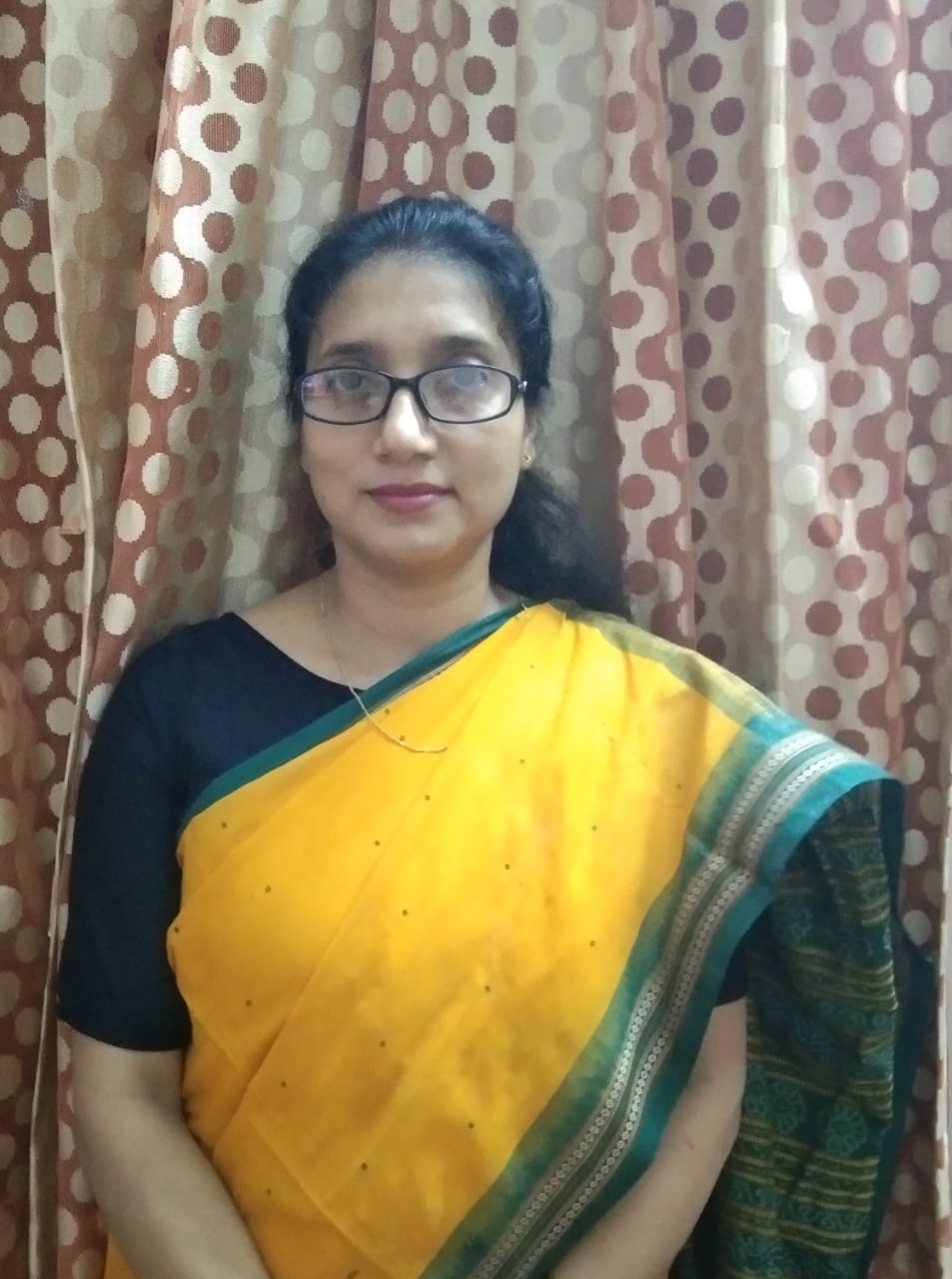
| Name : | Dr. Susmita Adhikary |
| Designation: | Assistant Professor and HOD |
| Qualification: | Ph.D, M.Tech (Electrical Power) |
| Phone Number : |
Welcome from Head of the Department
The department of Electrical Engineering, Meghnad Saha Institute of Technology started its journey in the year 2002 with a vision to impart quality education through innovative research work for the betterment of the society at large. The department of Electrical Engineering is intended to impart the process of teaching and learning to improve knowledge, skill and attitude to each student. We always endeavor for all round development of our students and so we offer our students various avenues other than regular curriculum like research work, project work, project competitions, other co-curricular and extra-curricular work and competitions. Under the mentorship of our faculties and technical staff personnels, our students have achieved many prestigious awards for their innovative ideas like Retina, Third eye, Dottage care etc. The department has many student papers in IEEE conferences and SCI journals. Our alumni are making us proud in all walks of life like power industry, steel sector, other core sectors and various software industries. Some of our alumni are also doing PhD in prestigious academic and research institutions and few are with their own startups also. At the end I wish to mention that we have a team of faculty and technical staff members who are very dedicated, enthusiastic and always eager to encourage our students to excel in academics and also to do something more, to make them a better individuals.
B.Tech.
The department of Electrical Engineering, abbreviated EE, is offering an undergraduate engineering degree program since the establishment of the university named ‘West Bengal University of Technology’ (now MAKAUT) in the year 2001 with a view to offer quality higher education to numerous worthy young fellows as well as to meet the huge demand of highly qualified specialists in the field.
Intake: 60
Faculty, Dept. of EE
|

| ||||||||||||||
|

|
||||||||||||||
|

| ||||||||||||||
|
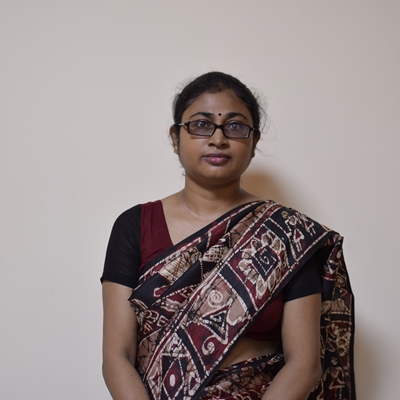
| ||||||||||||||
|

| ||||||||||||||
|
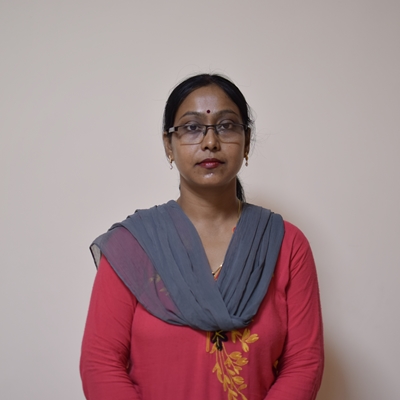
| ||||||||||||||
|
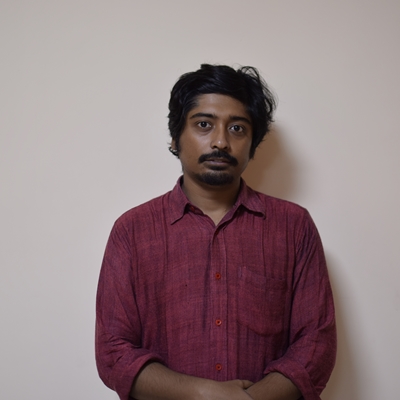
| ||||||||||||||
|
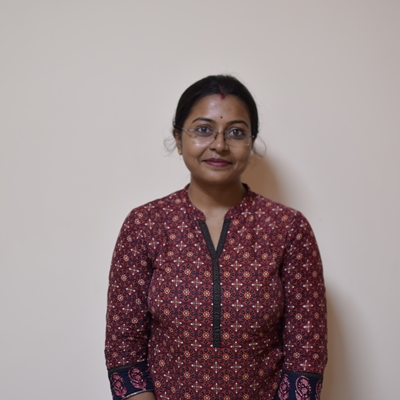
| ||||||||||||||
|

| ||||||||||||||
|
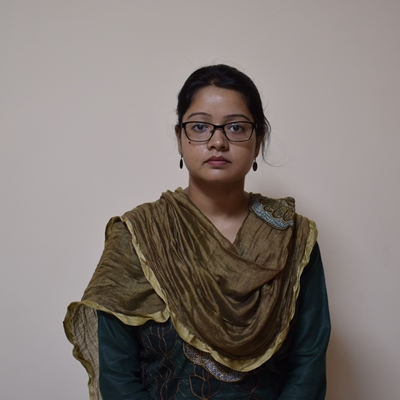
|
Lab Assistant, Dept. of EE
|

| ||||||||||
|
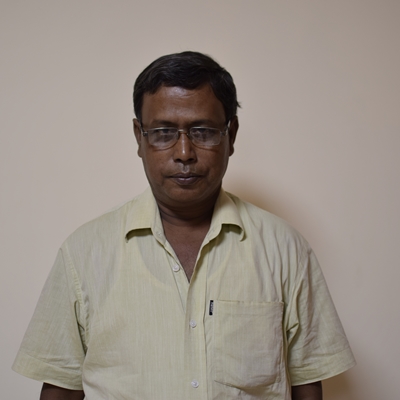
| ||||||||||
|
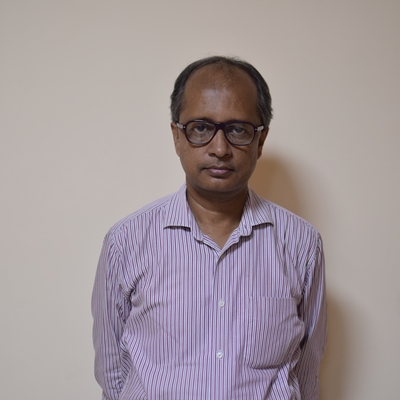
| ||||||||||
List of Publication, Dept. of EE
2019-20 onwards
2017-2018
- Susovan Mukhopadhyay, Dipten Maity,Ambarnath Banerji, Sujit K. Biswas and Nirmal k. Deb, "A New Harmonic Reduced 3-phase Thyristor Controlled Reactor for Static VAR Compensators" IEEE Transactions on Industrial Electronics , Vol. pp. Iss 99, Sept 2017.
- Susovan Mukhopadhyay, Dipten Maity,Ambarnath Banerji, Sujit K. Biswas and Nirmal k. Deb, “Dual Delta Bank TCR for Harmonic Reduction in 3-phase Static VAr Controllers,” IEEE Transaction on Industry Application, vol.53, iss.6, pp. 5164-5172, Nov/Dec2017.
- Dipten Maiti; Susovan Mukhopadhyay; Ambarnath Banerji; Sujit K. Biswas; Nirmal K. Deb,“Harmonic Cancellation in a Three-Phase Thyristor Controlled Reactor Using Dual Banks,” IEEE Transactions on Industrial Electronics, vol.64,iss. 12, pp. 9201 - 9209, Dec. 2017.
- Susovan Mukhopadhyay; Dipten Maiti; Sujit K. Biswas; Ambarnath Banerji; Nirmal K. Deb, "A Wide Range TCR with Low Current THD by Optimized Combination of Coupled Reactors and Thyristor Switching & Control,” IEEE Transactions on Industrial Electronics, vol. 65, iss. 5, pp. 3657 – 3665,May 2018.
- Epsita Das, Ambarnath Banerji and Sujit K. Biswas, “State of Art Control Techniques of DSTATCOM,” IEEE Calcutta Conference (CALCON) 2017, pp. 268-273.
- Tathagata Biswas, Payel Ghosh, Bhaswar Manna, Ambarnath Banerji and Sujit Kumar Biswas, “Non-Radiative Wireless Power Transfer using Inductive Resonance Coupling,” IEEE Calcutta Conference (CALCON) 2017, pp.479-483.
- Epsita Das, Ambarnath Banerji, Sujit K. Biswas,"State of Art control Techniques for DSTATCOM"; Calcutta Conference, CALCON (2017),IEEE, pp.268-273, 2-3rd December, 2017.
- Susmita Kundu, Debashis Chatterjee, Krisnandu Chakrabarty,"Effect of smoothing reactor on performance of dc drive", CALCON-2017.
- Susmita Kundu, Debashis Chatterjee, Krisnandu Chakrabarty, " Bifurcation Behavior of Current Controlled PWM Chopper Fed Dc Drive", 25th West Bengal State Science and Technology Congress,14-15 December, 2017".
- Susmita Kundu, Debashis Chatterjee, Krisnandu Chakrabarty," Bifurcation Control ofv a chopper fed dc drive", International Conference of Matjhematical Analysis amd Application in Modelling, 9-12 January, 2018.
- Susmita Kundu, Debashis Chatterjee, Krisnandu Chakrabarty," Bifurcation Behavior of Current Controlled PWM Chopper Fed Dc Drive", 25th West Bengal State Science and Technology Congress,4-5March, 2018.
- Saha, Sriparna, Biswarup Ganguly, and Amit Konar. "Gesture Recognition from Two-Person Interactions Using Ensemble Decision Tree." In Progress in Intelligent Computing Techniques: Theory, Practice, and Applications, pp. 287-293. Springer, Singapore, 2018.
- M. Steczek, A. Chatterjee and D. Chatterjee, “Optimization of current harmonics for three-level VSI based induction motor drive suitable for traction application,” IET Power Electronics, Accepted, Available online, March 2018.
- A. Chatterjee and D. Chatterjee, “PV-assisted microgeneration scheme with single-phase induction generator suitable for wide speed range application,” IET Power Electronics, Vol. 10, No. 14, pp. 1859-1869, 2017.
- A. Chatterjee, S. Ghosh and D. Chatterjee, “Analysis and control of a two winding IG based wind-photovoltaic generation scheme for domestic application”, IEEE Calcutta Conference, (IEEE CALCON 2017), Kolkata, India, Dec. 2-3, 2017.
- S. Ghosh, A. Chatterjee and D. Chatterjee, “Load monitoring of residential electrical loads based on switching transient analysis”, IEEE Calcutta Conference, (IEEE CALCON 2017), Kolkata, India, Dec. 2-3, 2017.
- Prof. R. Chakrabarti, R.Joneja” An Overview of New Communication, Surveillence &Security Technologies for Indian Airports”--Communicated to the Institution of Engineers (India).
- Prof. R. Chakrabarti, R. Joneja” Prospective Communication Technologies for Indian Airports”--Communicated to the Institution of Engineers (India).

